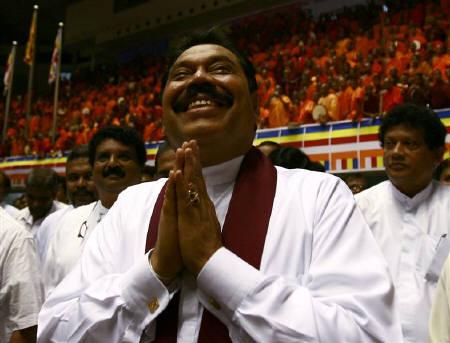‘Only A Pawn In Their Game?’
By Tisaranee Gunasekara -February 23, 2014 |
“There are not two Germanies, a good one and a bad one, but only one whose best turned into evil through devilish cunning.” - Thomas Mann (Germany and the Germans)
Commenting on the wave of popular unrests which began in 2011 and swept across countries from orient to occident, Joseph Stiglitz opined that “there was a common understanding that in many ways the economic and political system had failed and that both were fundamentally unfair”.[i]
 2011 was, in general, a quiet year in Sri Lanka. The majority Sinhala community still dreamed of the peace dividend and believed that the regime would deliver developmental success just as it did martial victory. As the CPA Survey on post-war Sri Lanka reveals, in 2011, a colossal 70% of Sinhalese thought that the general economic situation will get better in the next two years. This delusive confidence in an economically better future stemmed from two interrelated beliefs: in 2011, a majority of Sinhalese thought that both their own financial situation and the general economic situation got better, post-war.[ii]
2011 was, in general, a quiet year in Sri Lanka. The majority Sinhala community still dreamed of the peace dividend and believed that the regime would deliver developmental success just as it did martial victory. As the CPA Survey on post-war Sri Lanka reveals, in 2011, a colossal 70% of Sinhalese thought that the general economic situation will get better in the next two years. This delusive confidence in an economically better future stemmed from two interrelated beliefs: in 2011, a majority of Sinhalese thought that both their own financial situation and the general economic situation got better, post-war.[ii]
This sense of wellbeing, confidence and hope would begin to evaporate in the next two years. But by then the Rajapaksa had built enough dams to divert public discontent along ethno-religious channels. The BBS and other extremist organisations, with the full backing of the Ruling Siblings, had started creating a new politico-economic-social commonsense which would, in the next two years, inform public discourse and divert public attention to a sufficient degree. The Sinhala public was told that the unfairness of the political and economic system was sourced in its ‘minority-bias’ and that the peace dividend could not materialise so long as the ‘minority threats’ to ‘Sinhala security’ remained. Read More
